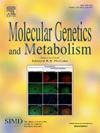Home infusion experience in patients with Pompe disease receiving avalglucosidase alfa during three clinical trials
IF 3.7
2区 生物学
Q2 ENDOCRINOLOGY & METABOLISM
引用次数: 0
Abstract
During three previously reported clinical trials of avalglucosidase alfa in patients with Pompe disease, 17 out of 142 participants were considered by the investigators to be appropriate candidates for home infusion. During their respective trials, these participants received a total of 419 avalglucosidase alfa infusions at home under healthcare professional supervision. They were clinically stable with no history of moderate or severe infusion-associated reactions within at least 12 months prior to starting home infusions. As of February 25, 2022, the 15 participants with late-onset Pompe disease (LOPD) had received between 2 and 48 home infusions and the 2 participants with infantile-onset Pompe disease (IOPD) had received 19 and 20 infusions. Adverse events occurred in 8 (53 %) participants with LOPD and neither of the participants with IOPD. Seven participants with LOPD had a total of 15 non-treatment-related, non-serious adverse events. One participant with LOPD experienced infusion-associated reactions of eyelid edema and flushing during the first home infusion; both were non-serious adverse events classified as grade 1 (mild). Home infusion was later resumed for this participant. Among LOPD participants, event rates for home infusions were comparable to those for clinic infusions: overall adverse events (0.028 vs 0.039 participants with events/infusion, respectively) and adverse events classified as infusion-associated reactions (0.003 vs. 0.006, respectively). No medication errors occurred during home infusion. These data suggest that infusion of avalglucosidase alfa at home is feasible and does not compromise safety for patients who have not experienced an infusion-associated reaction during the preceding 12 months of infusions in a clinical setting. Evaluation of real-world experience with avalglucosidase alfa home infusion in countries where it is already approved is ongoing.
在三项临床试验中,接受阿瓦糖苷酶α治疗的庞贝病患者的家庭输液经验。
在此前报道的三项针对庞贝病患者的阿瓦糖苷酶α临床试验中,142 名参与者中有 17 人被研究者认为是适合进行家庭输液的人选。在各自的试验期间,这些参与者在医护人员的监督下在家接受了总共 419 次阿瓦糖苷酶α输注。他们在开始家庭输液前至少 12 个月内临床状况稳定,没有中度或重度输液相关反应史。截至2022年2月25日,15名晚期庞贝氏症(LOPD)患者已接受了2至48次家庭输液,2名婴儿期庞贝氏症(IOPD)患者已接受了19至20次输液。有 8 名(53%)LOPD 患者发生了不良反应,IOPD 患者中没有一人发生不良反应。七名 LOPD 患者共发生了 15 起与治疗无关的非严重不良事件。一名患有眼睑下垂的参试者在第一次家庭输液时出现了眼睑水肿和潮红的输液相关反应;这两种非严重不良反应均被列为 1 级(轻度)。该患者后来恢复了居家输液。在慢阻肺参试者中,居家输液的不良事件发生率与门诊输液的不良事件发生率相当:总体不良事件发生率(0.028 对 0.039)和输液相关反应不良事件发生率(0.003 对 0.006)分别为 0.028 和 0.039。家庭输液过程中未发生用药错误。这些数据表明,在家中输注阿瓦糖苷酶α是可行的,而且对于在临床输注前12个月内未发生过输注相关反应的患者来说,不会影响输注的安全性。在已批准阿瓦糖苷酶α在家输液的国家,对阿瓦糖苷酶α在家输液的实际经验评估正在进行中。
本文章由计算机程序翻译,如有差异,请以英文原文为准。
求助全文
约1分钟内获得全文
求助全文
来源期刊

Molecular genetics and metabolism
生物-生化与分子生物学
CiteScore
5.90
自引率
7.90%
发文量
621
审稿时长
34 days
期刊介绍:
Molecular Genetics and Metabolism contributes to the understanding of the metabolic and molecular basis of disease. This peer reviewed journal publishes articles describing investigations that use the tools of biochemical genetics and molecular genetics for studies of normal and disease states in humans and animal models.
 求助内容:
求助内容: 应助结果提醒方式:
应助结果提醒方式:


